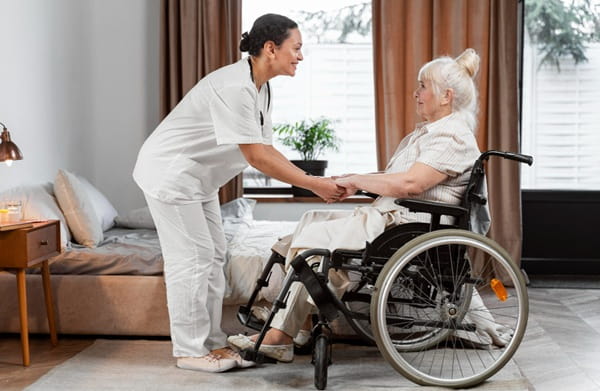When the people we love get old or experience health issues, we may struggle to know when they will require additional support in their home.
Home care services can provide the necessary support, enabling individuals to live independent lives while receiving the necessary care.

It’s essential to be aware of warning signs that may indicate your loved ones need home care to ensure their safety and well-being. In this blog post, we’re going to shed light on five signs in detail to be on the lookout for.
1. Decline in Physical Health
Recurrent falls, problems with walking, and unintentional bruises may appear as some of the common signs that indicate that your loved one requires mobility support.
Moreover, alterations in appetite, weight loss, or a decline in personal hygiene may lead to deteriorating health. In cases, periodic visits or appointments with medical practitioners can help identify any underlying conditions. So, consider an all-in-one solution based on your comfort and medical needs, known as home care.
2. Cognitive Changes
Cognitive changes, including forgetting, confusion about time or place, financial management problems, and difficulties with conversation, can also raise the need to seek at home care.
When your loved one starts losing things or has mood swings, it might be an indicator of dementia or other cognitive disorders. These changes must be closely monitored, as they might need regular professional evaluation.
3. Social Withdrawal
In case your loved one is starting to grow or has grown more isolated, lacking interest in activities they previously enjoyed, or refusing to socialize, this may be due to emotional distress or the onset of depressive symptoms.
To overcome the feelings of loneliness and improve their quality of life, home caregivers can offer them companionship and promote their social participation.
4. Difficulty Managing Daily Activities
Difficulties in everyday activities, such as cooking, cleaning, shopping, or managing medication, may pose serious health hazards. When your loved one starts forgetting to take medications or begins using prepared meals, it’s time to think about home care.
At-home professional caregivers would aid in preparing meals, giving them medications on time, and maintaining a clean living environment. Therefore, all necessary activities are performed safely and effectively, ensuring their overall well-being and ease of life.
5. Chronic Illness Management
In cases where a person has chronic conditions such as diabetes, heart disease, or arthritis, regular monitoring and treatment may be crucial.
If managing their condition becomes overwhelming or if they are having difficulty following treatment plans, home care professionals can provide the necessary support. This encompasses assistance with symptom control, routine check-ups, and liaison with caregivers.
Final Words
By recognizing these symptoms, you can take proactive measures to ensure the safety and fulfilling survival of your loved one. Home care can provide the necessary support, enabling individuals to maintain their independence while receiving compassionate assistance tailored to their specific needs.
If you observe any of these signs in your loved one, consider discussing their concerns with healthcare professionals, or local home care services to explore the best options available.


